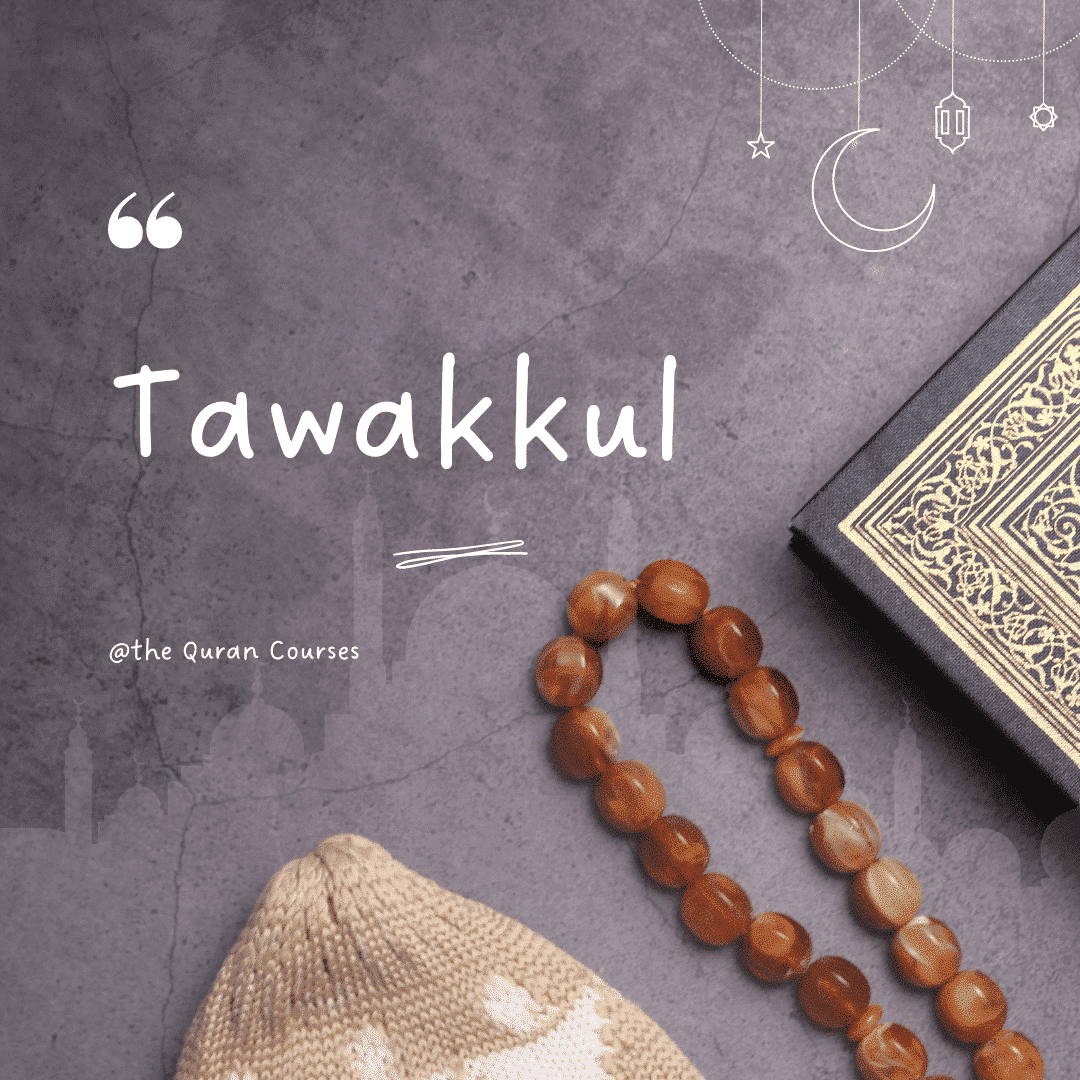What does Tawakkul (Arabic word: التوكل) mean? Some people have misunderstood what هit implies in Islam. It refers to having entire faith in Allah. Allah Almighty is capable, adequate, and wise in all matters. Thus we should put our trust in him alone. Let’s learn more about it by looking at this thread.
Tawakkul
We should never underestimate the importance of taking care to safeguard ourselves as Muslims.
We are instructed to take the necessary measures and then leave the rest to Allah; we develop our faith by increasing our prayers and supplications to Him and doing what pleases Him.
Our Prophet (PBUH) shared two miracle arrows in Islam’s quiver. Dua and Sadaqah
Charity prevents disaster.
“Give charity without delay, for it stands in the way of calamity,” (Al-Tirmidhi)
Divine decrees can be changed through prayer.
“The dua meets the calamity that has been decreed and wrestles with it, until the Day of Resurrection” (Tabarani).
TAWAKKUL’S IMPORTANCE AND BENEFITS:

Those who have faith in Allah are on the road to prosperity and triumph.
A person who has complete confidence in Allah and never doubts that trust he will have a happy life.
When it is accurate and pure, the believer suffers little because he believes Allah is looking out for his best interests.
That isn’t to imply your issues aren’t real, only that you can’t cry them away or walk away from them.
It exists, and you must suffer and survive it.
The most effective approach is to persevere without losing hope, faith, or trust.
Move on and improve as a result.
The more we remember Allah and strive to please him by following the blueprint presented in the Quran, the more goodness we shall experience in this life and the next.
Stop longing for anything different to happen or a different outcome.
That is a fictitious existence and a route to misery.
When something good happens, we say Alhamdulillah, and when something terrible happens, we don’t say Alhamdulillah twice because Allah planned it that way.
Tawakkul’s Levels
We will go through some of the stages of Tawakkul that we may readily comprehend below:
Tawhid, the foundation for Tawakkul, might be described as the initial level of Tawakkul.
We must believe that Allah Almighty is the Best Sustainer, that He is All-Wise, All-Capable, and adequate to rely on.
Only with His Will and Instructions could anything happen or transpire.
The second stage is to think that everything has a reason or purpose.
Due to their ignorance, some individuals abandon these methods and believe that this is dependence on Allah Almighty.
They do nothing while waiting on Allah (SWT) to send down their sustenance, feed them, and care for their problems and affairs.
We should not be complacent or inert; we should use every resource at our disposal to achieve our objectives.
We must believe in Allah, but we must also do something for ourselves to enjoy our lives.
The third stage is to keep your faith in Allah alone. Indeed, a person’s faith in Allah cannot be fully realized until they depend only on Him.
The fourth stage is to entirely rely on Allah and be at ease while doing so, to the point where one is not concerned about their sustenance.
The ultimate degree of Tawakkul, which we should all strive for, is to recognize that the aspect of reliance on Allah is to trust Him in all things freely, rather than feeling compelled to do so.
Tawakkul Examples

In talking about Tawakkul in Islam, discover some related examples.
The Life of Prophet Ibrahim (AS)
Prophet Ibrahim is one of the most important stories that come to mind (AS).
His life was full of ups and downs, yet he remained unflappable because of his profound faith in the Almighty.
They constructed a big grave when King Nimrod of Babylon ordered Prophet Ibrahim (AS) to be burnt alive.
It was the most massive fire anyone had ever seen. The Prophet was bound and shackled before being cast into the fire.
Angel Jibrail (AS) came to see him and asked for his request.
Prophet Ibrahim (AS) prayed for Allah’s (SWT) blessing on him.
For Prophet Ibrahim (AS), Allah, The Most Beneficent and Merciful, commanded the fire to be calm and harmless.
And he walked away from the flames without breaking a sweat.
Prophet Ibrahim (AS), too, had to endure a test when Almighty Allah told him to sacrifice his son Ismail.
This dream was relayed by Prophet Ibrahim (AS) to Ismail, who consented to Allah’s Will.
With Prophet Ibrahim (AS) blindfolded and a sharp knife on his neck, Ismail (AS) bent down on the ground with his forehead on the earth.
He found a dead ram standing next to him when he removed the blindfold, uninjured, thanks to Allah’s might.
Prophet Ibrahim (AS) and Ismail (AS) passed Allah’s test by trusting and following Allah.
The Life of Prophet Muhammad (SAW)
The Battle of Badr, when the chief of the Quraish tribe, Abu Jahl, insisted on fighting Prophet Muhammad, is another excellent example of Tawakkul ala Allah (PBUH).
While the news reached the Muslims in Medina, the army camped near the Badr location.
Despite being outmanned, the Muslims marched to Badr and fought their first combat in the second year of the Islamic calendar.
Muslims defeated their opponents despite being under-equipped and having fewer than half of the Meccan army.
When Prophet Muhammad (PBUH) requested Allah (SWT) for help, Allah responded:
“Remember, when you cried out to your Lord for help, He answered, “I will reinforce you with a thousand angels—followed by many others. And Allah made this a sign of victory and reassurance to your hearts. Victory comes only from Allah. Surely Allah is Almighty, All-Wise.”
Conclusion
In Islam, tawakkul does not imply only complete dependence on God’s Taqdir.
It must include honoring and following God’s causal rule inherent in the cosmos.
Man must endeavor to fulfill the causal rule of anything they desire to achieve, and this striving must be in the greatest possible way, not only as a consolation prize.
And Allah is the most knowledgeable.
Read More: 4 Similarities between Judaism, Christianity, and Islam



